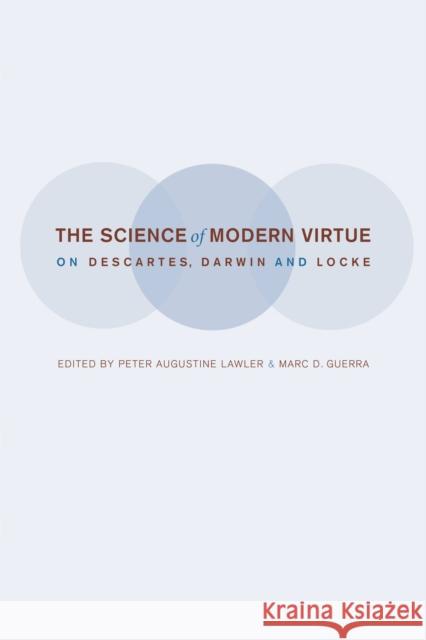The Science of Modern Virtue » książka
The Science of Modern Virtue
ISBN-13: 9780875804750 / Angielski / Twarda / 2013 / 340 str.
"The Science of Modern Virtue" examines the influence that the philosopher Rene Descartes, the political theorist John Locke, and the biologist Charles Darwin have had on our modern understanding of human beings and human virtue. Written by leading thinkers from a variety of fields, the volume is a study of the complex relation between modern science and modern virtue, between a kind of modern thought and a kind of modern action. Offering more than a series of substantive introductions to Descartes, Locke s, and Darwin s accounts of who we are and the kind of virtue to which we can aspire, the book invites readers to think about the ways in which the writings of these seminal thinkers shaped the democratic and technological world in which modern human beings live.Thirteen scholars in this volume learnedly explore questions drawn from the diverse disciplines of political science, philosophy, theology, biology, and metaphysics. Let the reader be warned: The authors of these essays are anything but consensual in their analysis. Considered together, the chapters in this volume carry on a lively internal debate that mirrors theoretical modernity s ongoing discussion about the true nature of human beings and the science of virtue. Some authors powerfully argue that Locke s and Darwin s thought is amenable to the claims made about human beings and human virtue by classical philosophers such as Aristotle and classical Christian theologians such as Thomas Aquinas. Others make the opposite case, drawing attention to the ways in which Descartes, Locke, and Darwin knowingly and dialectically depart from central teachings of both classical philosophy and classical Christian theology."











